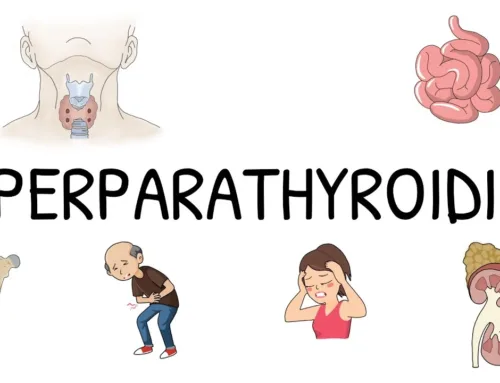Hashimoto’s Thyroiditis is a disorder where the body becomes overly sensitive to thyroid hormones. This causes the immune system to attack and destroy the thyroid gland, a butterfly-shaped organ located in the neck that makes hormones necessary for proper organ function. Hashimoto’s Thyroiditis most often develops young, with women being four times more likely than men to develop it. If left untreated, it can lead to chronic illness and even death. Fortunately, there are ways for patients with Hashimoto’s Thyroiditis (or other autoimmune disorders) to reverse their condition through natural methods such as diet and lifestyle changes and alternative therapies like acupuncture or homeopathy.

The Basics
Hashimoto’s Thyroiditis is an autoimmune disorder, meaning the body’s immune system strikes itself. It’s the most common cause of hypothyroidism (underactive thyroid).
According to the National Institute of Diabetes and Digestive and Kidney Diseases, about 1 in 10 individuals over age 60 have Hashimoto’s Thyroiditis; among people who are between 30 and 40 years old, it affects about 1 in 20 women and 1 in 30 men; among those under 30 years old, it affects 1 in 100 women and 1 in 200 men.
The Truth About Hashimoto’s Thyroiditis
Hashimoto’s Thyroiditis is an autoimmune disorder that affects the thyroid gland. The thyroid gland makes hormones that control metabolism, heart rate, and body temperature. Hashimoto’s can cause hypothyroidism (an underactive thyroid), which leads to symptoms like fatigue, muscle weakness, weight gain, and depression.
Hashimoto’s is the most typical cause of hypothyroidism in the United States and Europe–affecting up to 5 percent of people worldwide. It occurs when your immune system attacks healthy tissue in your body by mistake; this causes inflammation around your thyroid gland, so it doesn’t work properly anymore.
Causes Of Hashimoto’s thyroiditis
The exact cause of Hashimoto’s thyroiditis is unknown, but it is believed to be caused by genetic and environmental factors. Women are more likely to develop the condition than men, which often runs in families.
Symptoms of Hashimoto’s thyroiditis
Some of the common symptoms of Hashimoto’s thyroiditis include:
- Fatigue and weakness
- Weight gain
- Cold intolerance
- Constipation
- Dry skin and hair
- Hair loss
- Joint pain and stiffness
- Muscle weakness
- Depression and anxiety
- Memory problems
- Irregular menstrual periods or heavy bleeding
- Puffy face, especially around the eyes
- Enlarged thyroid gland (goiter)
Not everyone with Hashimoto’s thyroiditis will experience all of these symptoms, and the severity of symptoms can vary from person to person. Some people may not have any symptoms in the condition’s early stages. If you suspect you may have Hashimoto’s thyroiditis, it’s important to talk to your doctor, who can perform tests to confirm the diagnosis and recommend the appropriate treatment.
An immune system problem doesn’t cause Hashimoto’s! We now know that many factors contribute to its development: genetics play a role; environmental toxins can trigger it too; some people seem more susceptible because they lack certain nutrients needed for proper hormone production…the list goes on!
Steps to Reversing Hashimoto’s Thyroiditis
- Eliminate gluten from your diet.
- Exercise daily, at least 30 minutes a day.
- Take a multivitamin and probiotic daily (you can find them at any health food store).
- Eat more vegetables and fruit, especially greens like spinach or kale, which are high in vitamin K2.
- Getting enough sleep at night–at least seven hours is ideal for most people, but some may need more or less depending on how active they are during the day. It’s also important not to go too long without getting enough sleep; this can cause fatigue that affects all aspects of life, including job performance, relationships with friends/family members/partners, etc., mood swings due to hormone imbalances caused by lack of restful sleep patterns over time leading up until now where we’re feeling exhausted all day long without knowing why exactly?
You can reverse it with the right approach by making lifestyle changes, taking specific supplements, and getting your mind right.
Conclusion
Hashimoto’s has no cure, but it can be managed with medication and lifestyle changes. It’s important to seek treatment from a doctor specializing in managing this condition because they will know how best to manage symptoms such as fatigue and anxiety. They will also monitor your thyroid levels so they don’t get too high or low over time.




Leave A Comment